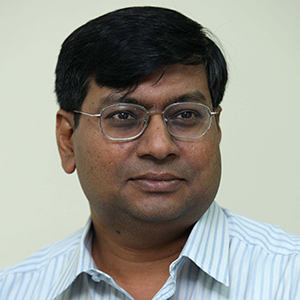Looking ahead to the new year, there will be no shortage of challenges in the political, economic and civil rights spheres which demand our attention as strong forces of change converge on the nation’s affairs.
 In the political sphere, the divisive climate surrounding the Umno general assembly earlier this month, where deputy president Tan Sri Muhyiddin Yassin and former prime minister Tun Dr Mahathir Mohamad faced off against prime minister and party president Datuk Seri Najib Razak, symbolises the strains bearing on the lead party of the ruling Barisan Nasional coalition.
In the political sphere, the divisive climate surrounding the Umno general assembly earlier this month, where deputy president Tan Sri Muhyiddin Yassin and former prime minister Tun Dr Mahathir Mohamad faced off against prime minister and party president Datuk Seri Najib Razak, symbolises the strains bearing on the lead party of the ruling Barisan Nasional coalition.
This polarisation will have to be resolved in time for BN to present a united front to the electorate for the next general election due by mid-2018.
For the ruling coalition to ride out this storm, it must transcend the interests of individual leaders and its diverse partners to convince voters that it is focused on promoting the greater good of all communities.
Its declining share of the popular vote in the last two general elections suggests that it has not been very successful in this direction.
It is self-evident that the obverse of every crisis is an opportunity for transformation, and so, the BN’s strategists must be more honestly self-critical in order to chart a safe course towards its redemption at the ballot box.
At the opposition corner, there is much unfinished business that stands in the way of its evolution into an alternative coalition which can represent the full spectrum of Malaysia’s diversity.
The discord between the secular DAP and the Islamist PAS of the former Pakatan Rakyat coalition, which ended with the collapse of that alliance in June, reveals the difficulties that obstruct the work of forging a viable substitute for the established BN brand.
For the nascent Pakatan Harapan which took over from the Pakatan Rakyat, 2016 will be a year for building new bridges where old ones fell apart under the strain of an incompatible relationship between two unyielding partners.
Ironically, hard-line groups like Perkasa and the organisers of the “red shirt” rally have shown Malaysians the negative effects of adopting a narrow communal agenda. Their harsh, unfriendly stance is so clearly jarring in our multiracial society that most people instinctively keep a distance from their events.
In reaction to this communal posturing, there has been a reciprocal tendency among non-Malay and non-Muslim groups to emphasise their cultural and constitutional rights in our plural society.
Over time, as these inhospitable feelings continue to be harboured among the various communities, there is an undeniable danger that they may become ingrained in the thinking of the general populace and could develop a self-perpetuating energy.
This must be guarded against if we wish to avoid getting trapped in a destructive game of escalating animosity.
Adding to the tension is a prolonged spate of official curbs on democratic freedoms that are spurring a persistent campaign by social activists to uphold civil rights and liberties.
The prosecution of a string of opposition leaders, lawyers and activists under the Sedition Act in the current year is just one aspect of this repressive trend.
All these forces are interacting to generate a negative tendency in the socio-political environment of the current times.
However, this momentum is not as inevitable as we sometimes tend to believe.
As we prepare to usher in the new year, it is important to remind ourselves that we can influence the social and cultural space by emphasising aspects of our diversity that show our common humanity rather than harping on the differences that divide us.
Therefore, it may be political for us to consciously avoid becoming trapped in an automatic retaliation against intolerant actions in our midst, and instead focus on propagating the idea of shared values and the underlying unity of our experience.
Much wisdom will be needed for the nation to emerge stronger from the sagas that are testing our resilience as a people with diverse histories, cultures and belief systems sharing a common destiny.
The one element that must be carefully nurtured is a sense of cohesiveness among the people, who are now divided by race, religion, regional sentiment and political leaning, among other things.
If we do not heed the fraying sense of unity among us, there may be a high cost to pay when the divisions that have been allowed to grow over time become too great to bridge.
Failure to address this issue today may leave the next generation to deal with a society that has become too fractured to work in unison for greater national goals.
The spirit of nationalism needed today is one that will take us beyond the narrow definition given to it by a racially oriented mindset to one which embraces the diversity of Malaysians in a bond of common feeling.
Can we work to spread that vision in 2016? – December 26, 2015.
* This is the personal opinion of the writer or publication and does not necessarily represent the views of The Malaysian Insider.


Comments
Please refrain from nicknames or comments of a racist, sexist, personal, vulgar or derogatory nature, or you may risk being blocked from commenting in our website. We encourage commenters to use their real names as their username. As comments are moderated, they may not appear immediately or even on the same day you posted them. We also reserve the right to delete off-topic comments